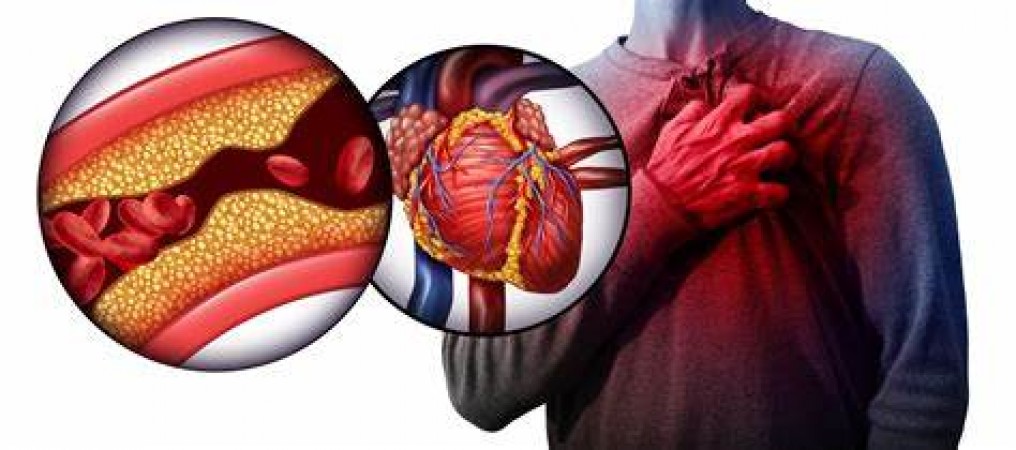
Heart disease remains a prevalent and serious health concern worldwide, contributing to a significant number of deaths each year. The good news is that many cases of heart disease are preventable. By understanding which habits increase the risk of a heart attack and why arteries get blocked, individuals can take proactive steps to protect their heart health.
Unveiling the prevalence and severity of heart disease as a leading cause of death.
Heart disease, often referred to as the "silent killer," encompasses a range of conditions that affect the heart and blood vessels. It includes coronary artery disease, heart attacks, heart failure, and more. Heart disease is the leading cause of death globally, with millions of lives lost each year.
Identifying lifestyle choices that contribute to a higher likelihood of heart attacks.
Delving into the detrimental effects of smoking on the cardiovascular system.
Smoking is a major risk factor for heart disease. The chemicals in tobacco smoke can damage the heart and blood vessels, leading to the narrowing of arteries and an increased risk of blood clots. It's never too late to quit smoking and reduce this risk significantly.
Analyzing the role of diet in heart health and the dangers of excessive salt and saturated fat.
A diet high in saturated fats, trans fats, and cholesterol can contribute to the buildup of fatty deposits in the arteries, a condition known as atherosclerosis. This narrowing of the arteries restricts blood flow and increases the risk of heart attacks. Adopting a heart-healthy diet rich in fruits, vegetables, whole grains, and lean proteins can make a substantial difference.
Highlighting the importance of physical activity and the risks of prolonged sitting.
Leading a sedentary lifestyle, characterized by sitting for long periods, can increase the risk of heart disease. Regular physical activity helps maintain a healthy weight, lower blood pressure, and improve overall heart function. Even simple activities like walking can have a significant impact on heart health.
Examining the relationship between chronic stress and heart attack risk.
Chronic stress can take a toll on the heart. It triggers the release of stress hormones, which can lead to elevated blood pressure and inflammation. Finding healthy ways to manage stress, such as through meditation, yoga, or counseling, is crucial for maintaining heart health.
Unraveling the process of how arteries become blocked and the consequences it brings.
Artery blockage is a key mechanism in heart attacks. Understanding how it occurs can shed light on the importance of lifestyle choices in preventing heart disease.
Explaining the role of cholesterol in forming arterial plaques.
Detailing the "bad" cholesterol and its impact on artery blockage.
LDL cholesterol, often referred to as "bad" cholesterol, is a significant contributor to arterial plaque formation. When LDL cholesterol levels are high, it can lead to the accumulation of fatty deposits in the arteries, narrowing them over time.
Highlighting the role of "good" cholesterol in maintaining arterial health.
HDL cholesterol, known as "good" cholesterol, helps remove excess cholesterol from the arteries and transport it to the liver for elimination. Higher levels of HDL cholesterol are associated with a reduced risk of heart disease.
Discussing the role of chronic inflammation in damaging artery walls.
Identifying foods that can trigger inflammation and damage arteries.
Certain foods, particularly those high in sugar, processed fats, and artificial additives, can promote inflammation in the body. Chronic inflammation can damage artery walls, making them more susceptible to plaque buildup.
Exploring how certain habits can lead to chronic inflammation.
Smoking, a poor diet, and lack of exercise are all factors that can contribute to chronic inflammation. By making healthier lifestyle choices, individuals can reduce their inflammation levels and protect their arteries.
Detailing how blood clots can obstruct blood flow in narrowed arteries.
Explaining how platelets contribute to blood clot formation.
When arteries are narrowed due to plaque buildup, platelets in the blood can become activated and stick together, forming clots. These clots can block blood flow, leading to heart attacks or strokes.
Mentioning medications that can help prevent dangerous blood clots.
In some cases, healthcare providers may prescribe blood-thinning medications to reduce the risk of clot formation in individuals with a history of heart disease or stroke.
Providing actionable steps to reduce heart attack risk and maintain healthy arteries.
Preventing heart disease is achievable through a combination of lifestyle changes and medical interventions.
Offering dietary recommendations to lower cholesterol and reduce inflammation.
A heart-healthy diet should include plenty of fruits, vegetables, whole grains, lean proteins, and healthy fats. Avoiding processed foods and excessive salt and sugar can significantly improve heart health.
Encouraging the importance of regular exercise for heart health.
Engaging in regular physical activity, such as brisk walking, jogging, or swimming, helps maintain a healthy weight, strengthen the heart muscle, and improve circulation.
Suggesting stress-reduction techniques and mental health support.
Finding healthy ways to manage stress, such as mindfulness meditation, deep breathing exercises, or seeking support from a therapist, can benefit both mental well-being and heart health.
Discussing medications and procedures for those with heightened heart attack risk.
In some cases, healthcare providers may prescribe medications to lower cholesterol, control blood pressure, or prevent blood clots. Surgical procedures, such as angioplasty or bypass surgery, may also be recommended to restore blood flow in severely blocked arteries.
Summing up the importance of being aware of habits that increase heart attack risk and understanding the science behind artery blockage. In conclusion, heart health is closely tied to daily habits, and certain choices can significantly increase the risk of heart attacks. By adopting a heart-healthy lifestyle that includes a nutritious diet, regular physical activity, stress management, and, when necessary, medical intervention, individuals can reduce their risk and protect their arteries from blockages.
World most beautiful Temple Akshardham, Know this Temple history